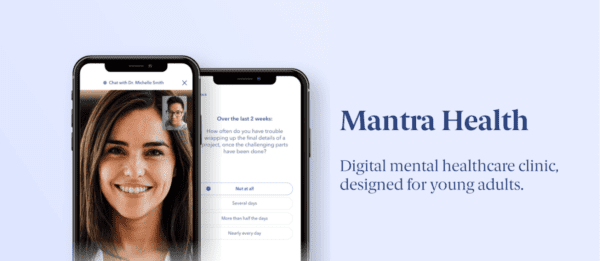|
AristaMD Acquires Preferral | Mantra Raises $22M
January 19, 2022
|
|
|

|
|
Together with
|

|
|
|
“Today’s referral paradigm is broken. It is estimated that 20M clinically inappropriate referrals are sent each year and that more than 20% of referrals are misdirected.”
|
|
AristaMD CEO Brooke LeVasseur
|
|

|
|
Lack of availability for specialist appointments is a growing problem that’s hard to tackle by just adding video calls or improving referral systems, but AristaMD believes that a combination of both solutions will move the needle in the right direction.
eConsult company AristaMD announced the acquisition of referral management startup Preferral to help address the 20% of referrals that it reports are misdirected and the 50% of referrals that “are often unfulfilled.”
- AristaMD’s eConsult platform allows primary care physicians to submit a case to a contracted team of over 300 specialists, who then have 24 hours to review it. The patient’s clinical history, lab results, and images are provided to allow the specialist to return a treatment pathway during the one-day window.
- The model is able to operate due to the fact that peer-to-peer asynchronous consultation is an informational consult, meaning that the specialist does not have to be licensed in the patient’s state. AristaMD works with health plans that offer eConsults as benefits, as well as health systems that use the platform to facilitate collaboration.
- Preferral’s solution enables PCPs to easily send a referral to a specialist and confirm receipt with both the originating practice and the patient, eliminating avoidable complications that result from busy clinics using fax machines and follow-up calls to coordinate referrals.
- Combining AristaMD’s eConsults with the Preferral platform will create a comprehensive physician-to-specialist referral solution, complete with reviews for prior authorization, scheduling, and interim care plan support.
The Takeaway
The acquisition of Preferral greatly improves the referral management component of AristaMD’s eConsults service, reshaping it as a comprehensive platform with the ability to improve access to specialists while expediting treatments.
|




|
|

|
|
Many mental health startups are beginning to take a specialized approach to treating a specific population, a strategy that is delivering impressive results for Mantra Health.
Student-focused clinic Mantra Health closed a $22M Series A round to address the growing prevalence of mental health disorders on US college campuses, raising its funding total to $27M.
- Mantra Health equips campus counseling offices with dedicated therapists and a digital platform to work as an extension of on-campus providers. Since introducing its Higher Education solution in 2020, Mantra has expanded to 52 US colleges accounting for over 500k students.
- The treatment model begins with an online assessment to introduce students to their care options, before allowing them to schedule an initial video consultation. The Mantra provider then works alongside the student to create a personalized care plan involving therapy, lifestyle adjustments, and possibly medication.
- The funding will be used to enhance Mantra’s clinical infrastructure to handle more complex diagnoses and expand its nationwide provider network. The company stated that it will need to quadruple its team within the next year to meet overwhelming demand – 100% of its partner campuses renewed or expanded services in 2020.
Mantra’s Future After Funding
As part of its expansion, Mantra is launching a new program to support students with long term mental healthcare needs, working with the students’ health plans as the payor instead of the school.
The long term care program allows graduating students to keep their current provider or make an appointment with a new one that has access to a Mantra Collaboration Portal designed to ensure patients receive care continuity during a major life transition.
|




|
|
Nuance’s Patient Engagement Must-Haves
Consumer demands are shifting, and they’re looking to get more out of their digital health technology. Nuance outlines the 5 must-haves for your patient engagement strategy here.
|
|
- Increased EHR Time: A recent study published in JAMIA found that ambulatory clinicians spent significantly less time in EHRs at the beginning of the pandemic, but since July 2020 have spent more time in EHRs than ever before (EHR time chart). The researchers found that telehealth adoption has led to a 157% increase in patient messages since 2019 (each additional message is associated with a 2.32-min increase in EHR time per day), and conclude that reimbursement should account for demands on clinician time that occur outside of a traditional visit.
- Verana Series E: Patient data company Verana Health closed a $150M Series E round ($289M total funding) to advance the development of its VeraQ insight platform for medical practices and life science companies. VeraQ analyzes data from an exclusive network of over 20k healthcare providers and 70 EHRs to provide physicians with a better understanding of a patient’s condition and treatment options, while providing tools to help guide clinical research.
- AI Development Frameworks: AI and machine learning models offer great potential within healthcare, but lack a standardized framework for development, according to a scoping review of 72 AI articles published in Nature. The review found that most AI teams provide insight into data preparation, but rarely give an in-depth overview of model validation. The researchers outline a 6-phase foundation for future AI development frameworks: (1) data preparation, (2) model development, (3) model validation, (4) software development, (5) impact assessment, and (6) healthcare implementation.
- Kaiser Permanente Joins Graphite: Kaiser Permanente recently joined Graphite Health, a member-led non-profit aiming to create an interoperable marketplace that allows health systems to easily source and pilot new technologies. Gaining Kaiser Permanente as a member adds momentum to Graphite Health’s mission, with the marketplace requiring both app-developers and end-users to scale effectively.
- Low-Value Care Delivery: New research from Johns Hopkins University analyzed data from 676 US health systems to explore hospital factors associated with providing low-value care such as spinal fusions for back pain or abdominal CT scans with/without contrast. Factors associated with low-value care delivery were more beds, fewer PCPs, investor ownership, and lack of a major teaching hospital. We won’t name any names, but a breakdown of the 20 hospitals that provided the most unnecessary care can be found here.
- Caregility Raises $25M: Virtual care company Caregility secured $25M in funding to help accelerate the growth of its platform that provides purpose-built devices to its 87 health system partners. Caregility announced that it is developing a new service that will enable health systems to quickly deploy a fleet of connected devices with minimal upfront capital, providing a consistent experience across all virtual care programs without dependence on consumer-grade technology.
- Health System Activism: An eMarketer report outlines why provider organizations like OSF HealthCare, a 15-hospital health system that recently raised a $100M venture fund, are becoming more active digital health investors. Investing in startups allows health systems to assist with the testing and scaling of unproven products, giving these solutions a higher probability of success than their competitors, which often leads to strong fund performance.
- TEFCA Announcement: The ONC released the much-anticipated Trusted Exchange Framework and the Common Agreement (TEFCA), creating the baseline legal and technical requirements to enable secure information sharing within healthcare. TEFCA seeks to establish a universal floor of interoperability by describing a common set of non-binding principles to facilitate data-sharing, with this week’s announcement marking the beginning of the implementation phase.
- AI Disparity Detection: A study published in JACR investigated the use of a deep learning model to detect atherosclerotic disease in chest X-Rays from two cohorts of COVID-positive patients: 814 from a suburban ambulatory center (largely White, higher-income) and 485 admitted at an inner-city hospital (largely minority, lower-income). The AI predictions were far more likely to match the suburban patients’ EHR codes than the inner-city patients’ EHR codes (0.85 vs. 0.69 AUCs), suggesting that healthcare systems could use AI/EHR analytics to ensure at-risk patients are identified quickly and any disparities are addressed.
- VitalConnect Funding: VitalConnect, a manufacturer of wearable biosensors for cardiac patients, raised a $39M Series E round (total funding now $149M) to grow its team and develop new products in the remote monitoring space. In May 2020, the company received emergency use authorization for its VitalPatch RTM to continuously monitor the heart rate, heart rate variability, and respiratory rate of COVID-19 patients.
|
|
|
|
|